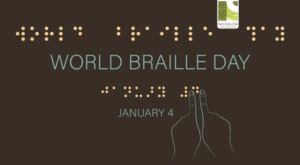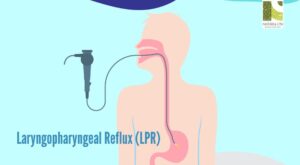Medical Coding and Its Scope in the Present World

In today’s fast-evolving healthcare landscape, medical coding has emerged as one of the most essential, fast-growing, and rewarding careers in the medical industry. While doctors and nurses are the face of healthcare, there’s a silent workforce behind the scenes ensuring that medical services are recorded accurately, translated into standardized codes, and communicated effectively for insurance claims, research, and public health monitoring.
This process—known as medical coding—forms the bridge between clinical care and healthcare administration. Let’s explore what it is, how it works, and why it is becoming a crucial profession worldwide.
What is Medical Coding
Medical coding is the process of translating healthcare diagnoses, procedures, medical services, and equipment into standardized alphanumeric codes. These codes are drawn from universal classification systems such as:
- ICD (International Classification of Diseases) – Maintained by the WHO for diagnoses
- CPT (Current Procedural Terminology) – For medical procedures and services
- HCPCS (Healthcare Common Procedure Coding System) – For supplies, equipment, and certain services
For example, a diagnosis of Type 2 Diabetes might be coded as E11.9 in ICD-10, and a knee replacement surgery might have its own specific CPT code.
Why is Medical Coding Important?
Accurate medical coding is essential because:
- Insurance & Billing: Ensures healthcare providers get paid correctly and promptly by insurance companies.
- Legal Compliance: Protects providers from fraud allegations by maintaining accurate documentation.
- Public Health Tracking: Enables government agencies and researchers to track disease trends, epidemics, and healthcare usage.
- Medical Research: Facilitates large-scale data collection for developing better treatments and policies.
How the Process Works
- Medical Documentation – Doctors record the patient’s symptoms, diagnosis, and treatment in their medical records.
- Code Assignment – Medical coders review the documentation and assign the appropriate ICD, CPT, and HCPCS codes.
- Claim Submission – The coded information is sent to insurance companies for processing.
- Data Use – The data can be used for analytics, patient records, legal purposes, and public health monitoring.
Skills Required for a Medical Coder
- Attention to Detail: Even a single digit error can cause claim denials or legal issues.
- Knowledge of Medical Terminology: Understanding anatomy, physiology, and clinical procedures is crucial.
- Familiarity with Coding Systems: ICD, CPT, HCPCS mastery is essential.
- Analytical Skills: To interpret and accurately translate clinical notes into codes.
- Computer Literacy: Most coding is done using specialized software.
The Scope of Medical Coding in the Present World
With the rise of digital healthcare and telemedicine, medical coding has become more important than ever.
1. High Global Demand
The healthcare industry is expanding rapidly. According to the U.S. Bureau of Labor Statistics, employment for medical records and health information specialists is projected to grow 8% from 2022 to 2032, faster than the average for all occupations.
2. Work-from-Home Opportunities
Many medical coders work remotely, making it an attractive option for those seeking flexible work arrangements.
3. Diverse Employment Settings
Medical coders are employed in:
- Hospitals and clinics
- Insurance companies
- Government health departments
- Medical billing agencies
- Research institutions
4. International Opportunities
Countries like the U.S., Canada, UAE, and Australia hire coders from abroad, often offering competitive salaries to skilled professionals familiar with ICD-10-CM and CPT systems.
5. Career Progression
With experience, coders can advance to:
- Medical Coding Auditor – Ensuring accuracy and compliance
- Health Information Manager – Overseeing medical record systems
- Medical Coding Trainer – Educating new coders
- Compliance Officer – Ensuring adherence to healthcare regulations
Challenges in Medical Coding
While rewarding, the profession comes with challenges:
- Frequent updates to coding systems require continuous learning.
- Pressure to meet deadlines while maintaining accuracy.
- Dealing with incomplete or unclear medical documentation.
Training & Certification
To become a certified medical coder, one can pursue courses from recognized bodies like:
- AAPC (American Academy of Professional Coders) – CPC, COC, CIC certifications
- AHIMA (American Health Information Management Association) – CCS, CCA certifications
In India, several reputed institutions and online platforms offer training tailored for international medical coding standards, which is highly valuable for global placements.
Medical Coding Salaries in India — What to Expect
Entry-Level & Freshers
Typical Medical Coders
Certified Medical Coders
Senior Medical Coders
Mid-Level to Experienced Coders
AmbitionBox Data
Factors Influencing Compensation
- Certifications (e.g., CPC, CCS) enhance earning potential.
- Location matters—major cities like Bangalore, Mumbai, Delhi tend to offer higher salaries.
- Specialization and employer type (e.g., hospitals vs. outsourcing firms) also affect pay.
Medical coding may be behind the scenes, but it is the backbone of modern healthcare administration. As healthcare data grows in volume and importance, skilled coders are in demand worldwide. Medical coding remains a promising career in India, with salaries starting modestly for freshers but growing significantly with experience and certification. Those with specialised skills or advanced qualifications can realistically aim for ₹6–7 lakh annually, especially in metropolitan areas.With opportunities for remote work, competitive salaries, and career growth, medical coding is no longer just a niche skill—it’s a global profession with a bright future.





